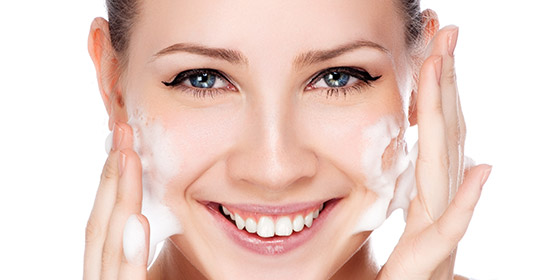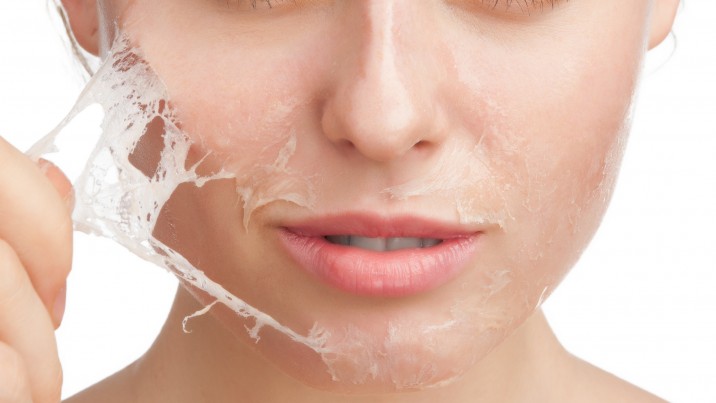
If your quest for a perfectly matte complexion is often ruined by an unsightly oil slick come noon, well, you’re not alone. The culprits? Genetics, hormones, chemicals and even the weather can all contribute to oily skin, making us go through more blotting papers and powder compacts than our totes can handle.
While a little sheen can impart a healthy glow to skins, it’s less than supermodel-esque when it creeps up on your T-zone and generally everywhere else. So, in a bid to stay completely shine free, we got the experts involved.
Why does our skin turn into an oil slick?
According to Dr Low Chai Ling, founder of SW1 Clinic, you are mot alone when it comes to excess sebum production. “Oily skin is caused by excess sebum production” she explains.
“This is the skin’s natural oil and there are a few reasons why your skin may product more at certain times, such as: during your menstrual cycle, when you’re physically or emotionally stressed and if you’re using products that don’t suit your skin type. The oily appearance is also often seasonal and can coincide with humid weather.”
Dr Low says that overactive sebaceous glands can even be a genetic thing (cheers, mum) and hormones also play a huge role. ‘The imbalance of testosterone increases the activity of sebaceous glands,’ she says, “Those with Polycystic Ovarian Syndrome often have trouble with oil and acne.”
So, how exactly can we banish shine and control our oil glands?
Read More: Face (The) Facts Friday! 3 Facts for a Slimmer Face
1. Master Your Daily Cleansing Routine

When you have oily skin, the urge to cleanse throughout the day can be a strong one but according to Dr. Low, more isn’t always better. In fact, over-washing can paradoxically lead to even more problems.
‘You should avoid over-cleansing if you have oily skin,’ says Dr Low, ‘as this can result in unnecessary irritation and may even disrupt the skin’s natural barrier. Ideally, you should be cleansing twice a day to help clean pores of sebum, dead skin cells and other debris.’
She says that we should be using the mildest cleanser suitable for our skin and not the harshest one available. This is to minimize the disruption in our skin barrier function and reduce the changes to the skin’s acid mantle which acts as a barrier to bacteria, viruses and other contaminants.
Opt for foaming cleansers or micellar water which will remove dirt, oil and make-up without stripping the skin of moisture, she recommends.
Try…
Read More: I Tried a Treatment Proven to Turn Back the Clock on Skin Aging – Profound Lift
2. Exfoliate Regularly

The good news about oily skin is that it is typically much thicker which means wrinkles are less likely to appear but the bad news is that it is prone to is spots and blemishes, as excess sebum mixes with dead skin cells to form a paste-like substance which blocks pores and allows bacteria to multiply.
The best way to combat this? Regular exfoliation. This is a simple step that you can incorporate at home with great results especially when you keep at it. Dr Chua Han Boon, aesthetic physician at SW1 Clinic says that the choice of your exfoliator is important. Try to use exfoliators with round spheres to minimal skin damage. You can also use fruit acids at home as a weekly peel.
Both of these work by getting rid of your dead cells, which will prevent comedone formation and enhance the penetration of your skincare.
“If your skin is oily, it’s hard for the skin to shed dead cells, so exfoliation is key,’ says Dr. Chua. “Physical exfoliation combined with chemical exfoliation will speed up cell turnover and prevent clogged pores so your skin boasts that healthy glow,’ he adds, ‘although, like cleansing, it’s vital not to overdo it. Two to three times a week is enough.
Try…
Pai Skincare Kukui & Jojoba Bead Skin Brightening Exfoliator, £24
Read More: 5 Insta-Remedies to Keep Your Complexion in the Clear
3. Don’t Give Up On Moisturiser

A common misconception is that if your skin is oily, it shouldn’t be dehydrated and most of us are guilty of ditching our moisturisers and serums out of fear of making it greasier – but we could be doing more harm than good.
In fact, products like these are necessary to maintain moisture levels, and if your skin is lacking in hydration, oil production can go into overdrive to compensate.
‘Even though it seems counter-intuitive, applying light moisturisers and serums to oily skin, especially when using strong cleansers, can help prevent the skin from becoming dehydrated,’ says Dr. Low. Of course the choice of your moisturizer is key. Choose lighter, water-based hydrators that will not clog pores and penetrate quickly into the skin. It’s best to avoid those that are super-creamy, heavy and occlusive.
“Oily skin still needs hydration or water,” she says, “and just because dehydrated skin lacks water, does not mean that it is not still producing oil!”
Try…
Read More: 5 Ways to Keep Your Eyes Looking Bigger

